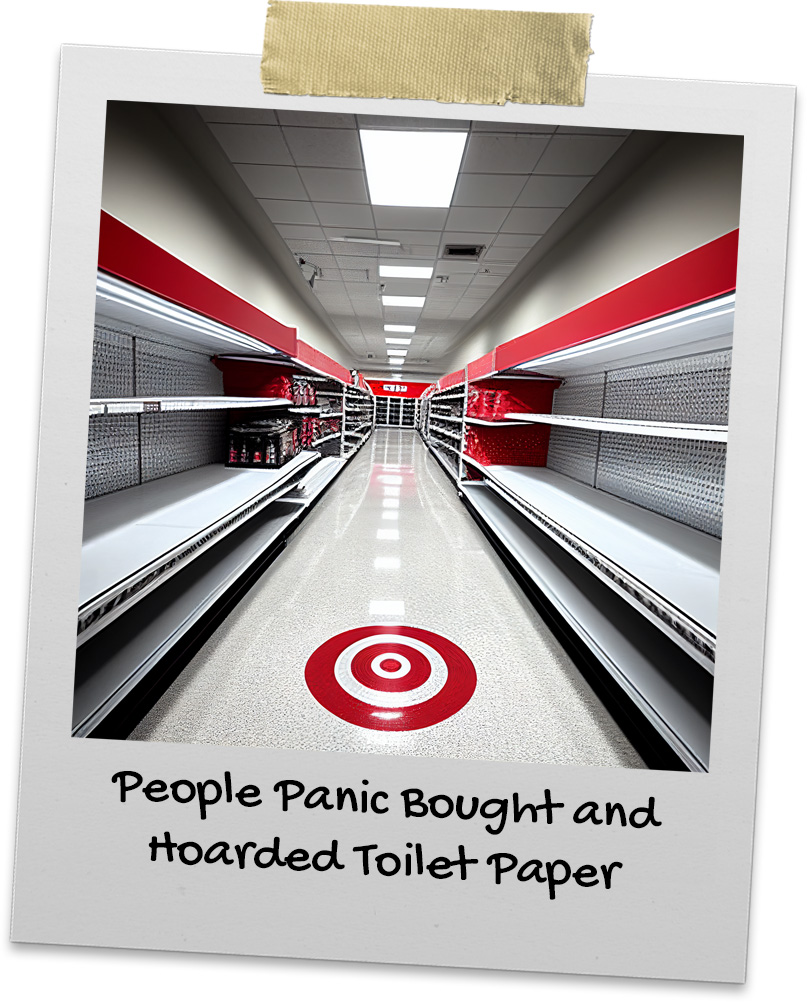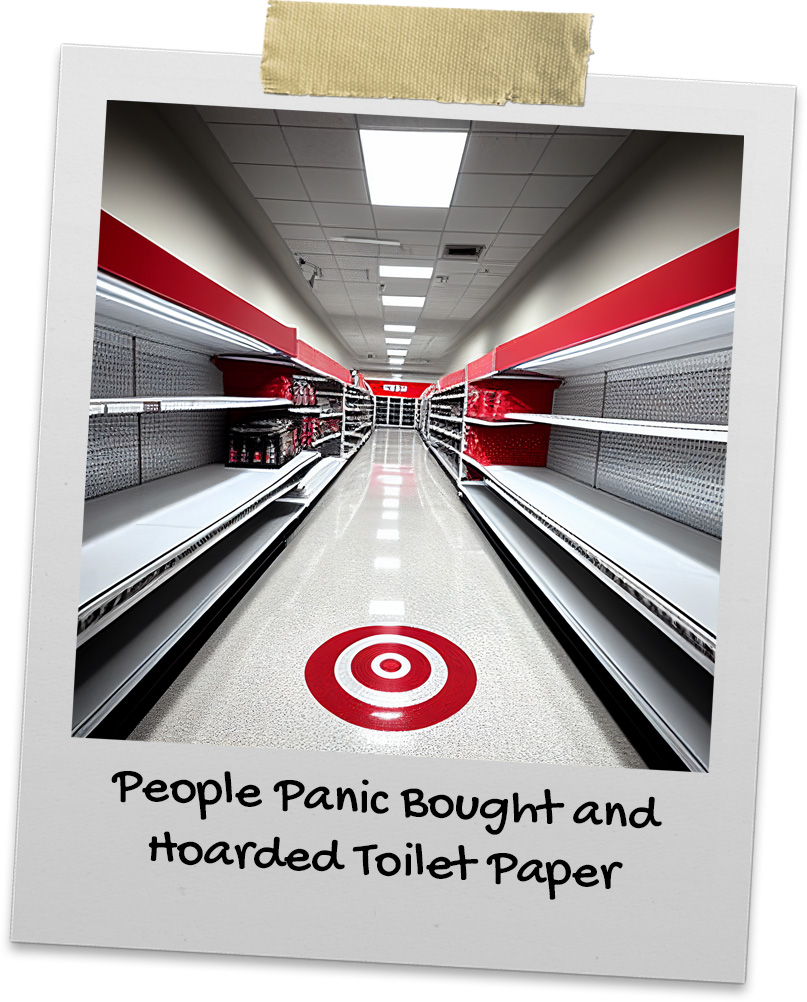People Panic Bought and Hoarded Toilet Paper


It was a strange sight to behold—hordes of people frantically pushing shopping carts through the aisles, throwing packs of toilet paper and bottles of hand sanitizer into their baskets as if their lives depended on it. The shelves that once held these mundane household items were now bare, stripped of their usual inventory.
This was the scene at supermarkets and pharmacies across the country as the COVID-19 pandemic began to sweep through the United States.
Why were toilet paper and hand sanitizer singled out, of all things? To understand this peculiar phenomenon, we must first examine the psychology of panic buying.
When faced with a crisis, our brains tend to go into survival mode. We become more risk-averse and prioritize the acquisition of resources that we believe will help us weather the storm. For some, this might mean stockpiling food and water. For others, it could mean buying face masks and hand sanitizer.
Toilet paper seemed to be a hot commodity during the early days of the pandemic. One theory suggests that people were buying up large quantities of it to feel a sense of control in an uncertain time. After all, there's something reassuring about having a well-stocked supply of toilet paper in your bathroom, even if you're not exactly sure why you need it.
But the demand for toilet paper far outstripped the supply, leading to shortages and even instances of hoarding. In some cases, people were spotted pushing shopping carts loaded with dozens of packs of toilet paper out of stores, leaving none for the rest of their communities.
This behavior was met with a mix of confusion and outrage from those who were unable to find the supplies they needed. Many took to social media to express their frustration, with the hashtag #toiletpaperpanic trending on Twitter.
The demand for hand sanitizer was also off the charts, as people sought to protect themselves from the highly contagious virus. Stores quickly ran out inventory, and prices for the remaining bottles appeared in large quantities on eBay, Amazon, and Facebook Marketplace.
In some cases, enterprising individuals saw an opportunity to make a quick buck by hoarding hand sanitizer and selling it at a markup. This only exacerbated the problem, as people were forced to pay exorbitant prices for a product that had previously been readily available.
As the pandemic wore on, it became clear that the panic buying of toilet paper and hand sanitizer was unfounded. These items can be useful in preventing the spread of germs, but there was no need to hoard them to the point of scarcity.
In fact, the World Health Organization (WHO) recommended a more holistic approach to preventing the spread of COVID-19, including washing hands frequently with soap and water, avoiding close contact with people who are sick, and wearing a mask in public.
The next time a crisis strikes, try to resist the urge to panic buy. Remember that hoarding supplies does more harm than good, and that there are more effective ways to protect yourself and your community.



